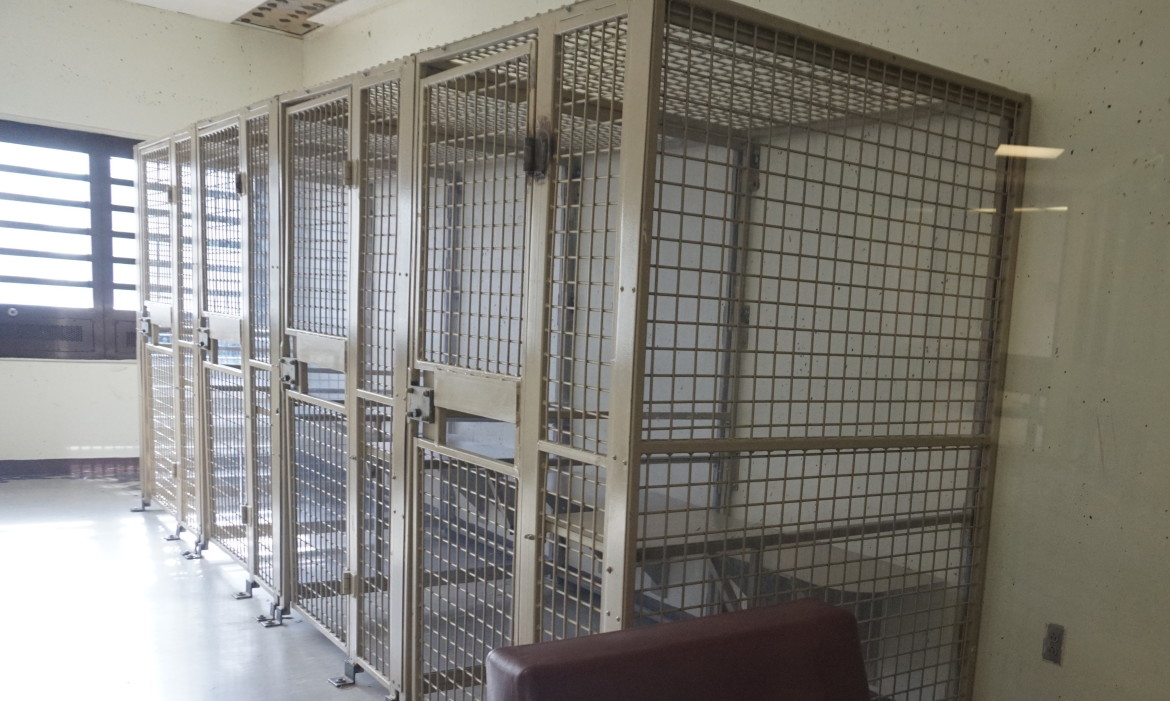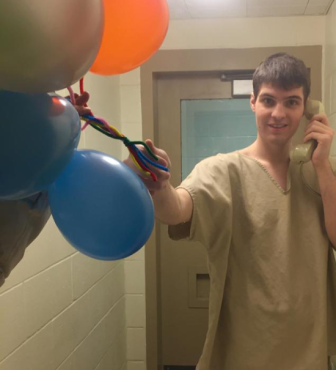NH IS IN A STATE OF SILENT EMERGENCY!
JUST WHEN YOU THINK NH FAMILY COURT JUDGES
AND DCYF BREAKING LAWS WASN'T ENOUGH OF A PROBLEM THE PAST 100 YEARS IN TAX FREE NH...
JUST WHEN YOU THINK NH FAMILY COURT JUDGES
AND DCYF BREAKING LAWS WASN'T ENOUGH OF A PROBLEM THE PAST 100 YEARS IN TAX FREE NH...
NH Government Treats Animals At
The Humane Society Better Than They have
Mentally Illness Patients For The Past 30 years!
NH has had a 10 year plan implemented for NH's Mental healthcare, for NH Homeless, and for the Judiciary Branch reorganization, going as far back as 2000, and has only seriously failed all three
NH has had a 10 year plan implemented for NH's Mental healthcare, for NH Homeless, and for the Judiciary Branch reorganization, going as far back as 2000, and has only seriously failed all three
424 LAW MAKERS ONLY PAID $100 A YEAR IN THE FOURTH LARGEST LEGISLATURE IN THE WORLD AND THIS IS THE BEST THEY CAN DO?
The following are quoted
from 2018 Article
By Nancy West
InDepth. org
"The State Prison for Men in Concord NH is about 200 over capacity"
"Unlike all other states, mentally ill people in New Hampshire who have been civilly committed to the state psychiatric hospital can be transferred to the State Prison for Men’s Secure Psychiatric Unit just a few miles away in Concord..."
"Patients and inmates are told they can attend various therapy sessions, have visitors, go watch television and go outside, although some choose not to and stay for long periods in their cells, Mike Shaw, a corrections sergeant at SPU said. Some refuse to take showers for days, he said. It is up to them to choose, Shaw said. “There should be orderlies to help them with showers, but there aren’t,” Shaw said."
" Charles Mealer was transferred to the Secure Psychiatric Unit on April 21, 2015, and placed on suicide watch, meaning he was to be checked every 15 minutes. The suicide watch was discontinued on June 22, 2015, and he was found dead in his cell on June 25, 2015, a week after his 47th birthday, according to the lawsuit. The toxicology report showed that Mr. Mealer had a blood level of 620 ng/ml of amitriptyline and 200 ng/ml of nortriptyline at the time of the autopsy...“Given his prescribed dose, the expected level should have been around 100 ng/ml,” the lawsuit said...On June 16, 2015, Mealer was prescribed 100 mg of amitriptyline at bedtime for seven days, then 50 mg at bedtime for seven days, the lawsuit said...The lawsuit was filed in Merrimack County Superior Court last September."
"Patients and inmates are told they can attend various therapy sessions, have visitors, go watch television and go outside, although some choose not to and stay for long periods in their cells, Mike Shaw, a corrections sergeant at SPU said. Some refuse to take showers for days, he said. It is up to them to choose, Shaw said. “There should be orderlies to help them with showers, but there aren’t,” Shaw said."
"One mother testified that she moved her family to Massachusetts so if her mentally ill son ever needed emergency involuntary commitment again, he would never be sent back to SPU."
"No one should be held in state prison because New Hampshire Hospital, the state psychiatric hospital, doesn’t have a secure enough unit to care for them, Coulter said...She was also concerned about a small number of mentally ill women housed in a separate section of SPU, all on the prison grounds. The State Prison for Men in Concord NH... "
“How would you like it if you had a loved one who had a heart condition and was told, ‘well there’s no room in the emergency room, but we can hold them in the jail and then transfer them later?’” Colorado's Executive Director of The Sheriff's Association, Sheriff Chris Johnson asked."
“This shouldn’t be happening anywhere. It should have ended decades ago everywhere in the United States,” Johnson said."
“This shouldn’t be happening anywhere. It should have ended decades ago everywhere in the United States,” Johnson said."
"And while it appears that many states are in the throes of a variety of serious mental health crises, New Hampshire is unique in imprisoning mentally ill people who haven’t committed a crime just because there is no place else secure enough to house them."
"Beatrice Coulter, a registered nurse who became an outspoken critic of the unit after working there for only a few days before quitting in disgust, testified that housing civilly committed people with mental illness with criminals in prison violates the Constitution and the Americans With Disabilities Act."
"Beatrice Coulter, a registered nurse who became an outspoken critic of the unit after working there for only a few days before quitting in disgust, testified that housing civilly committed people with mental illness with criminals in prison violates the Constitution and the Americans With Disabilities Act."
"On Aug. 21, New Hampshire hit a record with 72 mentally ill people waiting in hospital emergency rooms around the state for a bed at the New Hampshire Hospital, the state-run psychiatric hospital, NH Rep. Ken Snow said...With pressure like that on the system, it’s no time to focus on the few people at the Secure Psychiatric Unit who aren’t there for having committed a crime, Snow said...It doesn’t bother him that some are not in prison because of a crime they committed."
"Snow and other lawmakers have said over and over that the mental health system in New Hampshire is so deeply troubled – with many people waiting in local hospital emergency rooms every day for a psych bed – that the relatively small number of people at SPU who are not being held because of a crime will have to wait. It would be too costly to build a new facility, they say."
"The buck has been passed for way too long, Rep. Renny Cushing said. He traces it back three decades when the New Hampshire Psychiatric Society warned against commingling civilly committed individuals with convicted criminals at the unit."
SO MUCH FOR "NO MAN OR WOMAN IS LEFT BEHIND" MOTTO IN THE STATE OF NH
"The buck has been passed for way too long, Rep. Renny Cushing said. He traces it back three decades when the New Hampshire Psychiatric Society warned against commingling civilly committed individuals with convicted criminals at the unit."
SO MUCH FOR "NO MAN OR WOMAN IS LEFT BEHIND" MOTTO IN THE STATE OF NH
“It’s a disgrace,” said prison reform advocate Wanda Duryea of Farmington. “And this could happen to you or someone you love. People don’t realize this when they are trying to get help.”
JUST IN THE PAST 3 MONTHS IN OTHER NH NEWS
JUST IN THE PAST 3 MONTHS IN OTHER NH NEWS
1. "The homeless people have increased in numbers by 11% just in the year 2017 alone. After decreasing a total of 19% in the previous 24 months, 2015-2016."
3. "Concord, NH – DHHS Reported New Hampshire is experiencing an outbreak of syphilis, as the number of reported cases in New Hampshire for 2017 is about double that of previous years. From January through May of this year, forty-two cases of syphilis, a reportable sexually transmitted disease (STD), were identified. That is an increase compared with the past 5 years, when an average of 20 cases were reported during those months. Between 2012 and 2016, there were on average approximately 80 total cases per year of the disease reported in New Hampshire, with 2016 having the highest number of 104 cases reported for the entire year. The outbreak in New Hampshire is consistent with national numbers"
NH PEOPLE LIVING WITH HIV IN 2014
78% ARE MEN
22% ARE WOMEN
Estimated Percent of AIDS Diagnoses Within 3 Months of Initial HIV Diagnosis, US v NH 2014
DIAGNOSIS UNITED STATES NEW HAMPSHIRE
HIV 76.4% 77.5%
AIDS 23.6% 22.5%
4. "Hillsborough County's top prosecutor has asked for a budget increase of nearly $500,000, money he said is needed to hire more prosecutors, victim-witness advocates and support staff to rescue a "department on the brink of collapse."
5. New Hampshire being placed in the top 20 states for most suicide deaths. The Granite State exceeds national rates in almost every age category."
6. "MANCHESTER — The state will pay $6.75 million to settle a lawsuit brought by the grandparents of , Youth and Families, state Attorney General Gordon MacDonald said Thursday. two girls who suffered sexual abuse at the hands of their parents while the family was under supervision of the Division of Children. The settlement ends a four-year legal saga in which the grandparents, who have since adopted the girls, fought to sue the state and two non-profit agencies — Easterseals New Hampshire and CASA of New Hampshire — in open court. Their settlements with Easterseals and CASA have been sealed and parties on both sides would not discuss them.“It was a very, very troubling set of facts, as extreme as I have seen in the context of childhood sexual abuse,” said MacDonald after the hearing."
7. NH-A medical examiner’s office is considered deficient if an individual pathologist must perform more than 250 autopsies per year. Last year, Dr. Andrew and Dr. Jennie V. Duval, the deputy chief medical examiner, performed 250 each.
7. NH-A medical examiner’s office is considered deficient if an individual pathologist must perform more than 250 autopsies per year. Last year, Dr. Andrew and Dr. Jennie V. Duval, the deputy chief medical examiner, performed 250 each.
________________________________________________________
A state of contradictions, especially if you are mentally ill
 |
|

Nancy West photo: "Therapy booths" that look like human cages are used for group therapy at the Secure Psychiatric Unit at New Hampshire State Prison for Men.
This story originally appeared last September. InDepthNH.org is re-posting today because on Monday, a legislative committee will again wrestle with legislation dealing with people who are incarcerated at the men’s prison Secure Psychiatric Unit, some of whom haven’t committed a crime.
In New Hampshire, rights matter more for some than for others when caring for the mentally ill, especially compared to a state like Colorado where lawmakers are spending millions to make sure mentally ill people who haven’t committed a crime are not locked up in jails, even for very brief holds. And even Massachusetts with its notorious Bridgewater State Hospital is shifting gears toward therapeutic rather than punitive treatment.
In New Hampshire, rights matter more for some than for others when caring for the mentally ill, especially compared to a state like Colorado where lawmakers are spending millions to make sure mentally ill people who haven’t committed a crime are not locked up in jails, even for very brief holds. And even Massachusetts with its notorious Bridgewater State Hospital is shifting gears toward therapeutic rather than punitive treatment.
By Nancy West
InDepthNH.org
New Hampshire fights like mad to hold onto its first-in-the-nation presidential primary and the right to ride a motorcycle helmet-free.Only children are required to wear seatbelts in the Live Free or Die state. New Hampshire values individual rights, and the 424 lawmakers who are paid only $100 a year in the fourth largest legislature in the world guarantee them time and time again.
But it’s a very different story when it comes to the rights of mentally ill people, especially those in crisis.
Unlike all other states, mentally ill people in New Hampshire who have been civilly committed to the state psychiatric hospital can be transferred to the State Prison for Men’s Secure Psychiatric Unit just a few miles away in Concord even if they haven’t been charged with or convicted of a crime. They need only be deemed a danger to themselves or others to be transferred.
In the Secure Psychiatric Unit, they live side by side with criminally convicted felons and those who have been civilly committed because they were deemed not guilty by reason of insanity and not competent to stand trial; all are under the control of the state Department of Corrections.
“It’s a disgrace,” said prison reform advocate Wanda Duryea of Farmington. “And this could happen to you or someone you love. People don’t realize this when they are trying to get help.”
Duryea partnered with nurse Beatrice Coulter to form Advocates for Ethical Mental Health Treatment to try to stop the practice and improve mental health care.
Coulter, a longtime psychiatric nurse, took a job at SPU two years ago, but resigned after four days when she found the non-adjudicated individuals were commingled with county and state prison inmates as well as those civilly committed for underlying criminal offenses, including people found not guilty by reason of insanity and not competent to stand trial.
“The real tragedy of SPU has been the failure of numerous systems to protect these individuals from unlawful incarcerations masquerading as involuntary hospitalizations,” Coulter said.
Coulter was stunned, too, during her brief employment to see four telephone booth-sized cages on the unit used as “therapy booths.” Little therapy can happen under such circumstances, she said. Some individuals have languished in the Secure Psychiatric Unit for years in the absence of criminal charges or adjudication, said Coulter.
She was also concerned about a small number of mentally ill women housed in a separate section of SPU, all on the prison grounds. The State Prison for Men in Concord is about 200 over capacity at 1,412 inmates in units ranging from minimum to maximum security. SPU has a population of 49.
“Placement in a prison is inconsistent with well understood treatment principles. We need to search ourselves as a society and ask why this has been acceptable for so long,” Coulter said.
No one should be held in state prison because New Hampshire Hospital, the state psychiatric hospital, doesn’t have a secure enough unit to care for them, Coulter said.
 |
| Nancy West Photo: NH Rep. Renny Cushing, D-Hampton,NH |
A Fund For Investigative Journalism grant made possible this look at how New Hampshire and other states house mentally ill people who are in crisis and may be a danger to themselves or others, but haven’t been charged with or convicted of a crime.
And while it appears that many states are in the throes of a variety of serious mental health crises, New Hampshire is unique in imprisoning mentally ill people who haven’t committed a crime just because there is no place else secure enough to house them.
Colorado and a few other states have allowed non-criminal mentally ill patients to be briefly held in jail until a psychiatric bed is found. But Colorado lawmakers – who were surprised it was happening at all – recently banned the practice at the urging of sheriffs and advocates for the mentally ill.
 |
| Bridgewater State Hospital |
Men who haven’t been accused of or convicted of crimes are not incarcerated in Bridgewater, although the hospital remains part of the Department of Corrections. In virtually all other states besides New Hampshire and Massachusetts, people who are civilly committed remain under the care of their state’s department of mental health, not corrections, according to the nonprofit Treatment Advocacy Center of Arlington, Va.
Massachusetts Gov. Charlie Baker recently announced major changes at Bridgewater State Hospital, which serves only men involved in the criminal justice system who have been charged with a crime, require evaluation, or have been convicted and sentenced, and also require inpatient psychiatric treatment.
Bridgewater’s current population includes 209 men who must also be deemed by a court to be a danger to themselves or others because of mental illness. Correct Care Solutions of Tennessee has recently begun providing services at Bridgewater.
Corrections officers have been re-assigned to other prisons and have no day-to-day interaction with patients; they guard only the perimeter of Bridgewater.
“This administration is committed to real change and to improving the treatment of individuals with serious mental illness at Bridgewater State Hospital,” Gov. Baker said in a news release.
Colorado’s new beginning
 |
Chris Johnson, Executive Director of
The Sheriffs Association
|
“Then it became a matter of sheriffs holding them longer than 48 hours causing a forced U.S. Constitution 4th Amendment violation. This was becoming unacceptable.
“These were folks who were having a mental health crisis, but hadn’t committed any crime at all. They were not charged with anything,” Johnson said.
It disturbed him and other sheriffs and at first they tried to extend the hold time, which the governor vetoed. But a task force was created to take a hard look at the problem.
The new task force was to study how to “end the practice of confining in jail persons with mental illness who have committed no crime,” and it finally led to the change.
Johnson makes a comparison to what would happen if someone suffered a physical health emergency that is hard to ignore. It’s similar to one made by New Hampshire’s Rep. Cushing in trying to stop the practice in the Granite State during the last legislative session and during other previous unsuccessful attempts.
“How would you like it if you had a loved one who had a heart condition and was told, ‘well there’s no room in the emergency room, but we can hold them in the jail and then transfer them later?’” Johnson asked.
Colorado’s Democratic Gov. John Hickenlooper signed a bill in May that will increase funding for community-based treatment. The state funded $9.5 million, Johnson said.
On May 1, 2018, it will be against the law to hold anyone in a county jail for a mental health problem, Johnson said, a certain amount of pride in his voice.
“This shouldn’t be happening anywhere. It should have ended decades ago everywhere in the United States,” Johnson said.
When deinstitutionalization occurred decades ago, Johnson said community resources were supposed to be put in place. Many were. “And they have fallen way, way behind,” Johnson said.
A good deal of the funding for the Colorado fix will come from its marijuana tax revenue.
“I’m not a big proponent of marijuana. I think it exasperates social pressure and social problems, but if anything good is going to come out of it, I’m glad to see that it’s being used to assist people in mental health crisis,” Johnson said. “There is much, much more that needs to be done. This is just a starting point.”
The Colorado legislation had strong support, something that was absent in New Hampshire. Rep. Cushing has been pushing for years to end the practice of imprisoning people who haven’t committed a crime or as Cushing calls it, criminalizing mental illness.
Legislative hearings last year in New Hampshire filled with family members complaining about the treatment at SPU, advocates like Duryea and Coulter have gathered information and wrote op-ed pieces for newspapers and generally spread the word.
One mother testified that she moved her family to Massachusetts so if her mentally ill son ever needed emergency involuntary commitment again, he would never be sent back to SPU.
It was a tough fight, but Cushing’s legislation ultimately failed. A recent rule change allows for more due process rights for mentally ill patients, but the practice of commingling them with convicted criminals continues.
 Rep. Ken Snow, D-Manchester, was one of the lawmakers opposed to Cushing’s legislation. Snow worked in the mental health field for many years and believes the unit at state prison is the only safe place for the dangerous mentally ill patients, at least for now.
Rep. Ken Snow, D-Manchester, was one of the lawmakers opposed to Cushing’s legislation. Snow worked in the mental health field for many years and believes the unit at state prison is the only safe place for the dangerous mentally ill patients, at least for now.When he asks about numbers, Snow said there are usually fewer than 10 people of the 49 incarcerated at SPU who are not being held in connection with a crime.
Snow and other lawmakers have said over and over that the mental health system in New Hampshire is so deeply troubled – with many people waiting in local hospital emergency rooms every day for a psych bed – that the relatively small number of people at SPU who are not being held because of a crime will have to wait. It would be too costly to build a new facility, they say.
On Aug. 21, New Hampshire hit a record with 72 mentally ill people waiting in hospital emergency rooms around the state for a bed at the New Hampshire Hospital, the state-run psychiatric hospital, Snow said.
With pressure like that on the system, it’s no time to focus on the few people at the Secure Psychiatric Unit who aren’t there for having committed a crime, he said. The whole system needs to be overhauled, he said. The department contracts some medical services to MHM Correctional Services Inc. Snow praised the work of all of the SPU staff.
“It’s a pretty good facility,” Snow said. “If you listen to the family members, it sounds like a den of iniquity, but I have not seen that,” Snow said.
First-hand NH experience
Shelly Raza knows what it’s like to finally get a loved one civilly committed to the New Hampshire Hospital for help only to find him transferred to the state prison Secure Psychiatric Unit when he is considered a danger to himself or others.
While on a 24-hour watch, Corey pulled out all of his fingernails and toenails. “He said he needed to make them even,” Raza said.
At SPU, Raza and other family members were forced to undergo background checks and were held to the same rules as anyone visiting the state prison, even though the Department of Corrections insists that SPU is a hospital, not a prison. Critics are quick to point out, however, that SPU lacks hospital accreditation or outside professional oversight.
 |
Corey Peterson on his 24th birthday at Secure Psychiatric
Unit in prison, Concord NH
|
For the last few months that he was at SPU, Raza was banned from visiting Corey altogether because of an incident that occurred on his 24th birthday.
Raza took balloons into a non-contact visit at SPU and asked Corey to pretend to hold them by pressing his hand against the glass partition while he spoke to her on the prison phone. Raza took pictures on her cell phone and sent them to family members.
“I really thought it might be his last birthday,” Raza said, so she risked bringing in her cell phone to get photos knowing it could be considered prison contraband.
She feared for her son’s life because a middle-aged man in a cell near Corey’s had died and no one would say what had happened.
A corrections officer seized her phone that day, and she has been afraid to retrieve it because she was threatened with arrest.
Corey languished for most of two years at SPU, Raza said, but that changed after news reports were published locally detailing her criticism of SPU and the balloon incident. A VICE TV reporter showing up at SPU helped dramatically, too, she said, even though that report hasn’t yet aired.
Suddenly, Corey started receiving daily psychiatric treatment and became well enough to be returned to the New Hampshire Hospital, Raza said. He has since been released to a halfway house and is hoping to attend college, although Raza said she is still not satisfied with his care.
“He’s doing much better,” Raza said. “But it’s a constant battle.”
Death in SPU
 Charles Mealer died unexpectedly at age 47 at SPU on June 25, 2015. His estate is suing the state claiming his death was caused by “acute amitriptyline intoxication,” a drug he was being prescribed at the time.
Charles Mealer died unexpectedly at age 47 at SPU on June 25, 2015. His estate is suing the state claiming his death was caused by “acute amitriptyline intoxication,” a drug he was being prescribed at the time.
Charles Mealer’s prison photo
The lawsuit was filed in Merrimack County Superior Court last September. InDepthNH.org is the first media outlet to report this suit.
Amitriptyline is defined as an antidepressant drug of the tricyclic group, with a mild tranquilizing action. The suit was filed on behalf of administrator Renee Mayhew of Franklin, who is identified on a GoFundMe page as Mealer’s twin sister.
“I am so sad my twin has died. He went through a lot and we don’t know why he died as we have had autopsy done and waiting on his toxicology reports to come back. … I loved him with all my heart . (N)now he needs to be laid to rest,” Mayhew wrote after her brother’s death.
Mealer was transferred to the Secure Psychiatric Unit on April 21, 2015, and placed on suicide watch, meaning he was to be checked every 15 minutes. The suicide watch was discontinued on June 22, 2015, and he was found dead in his cell on June 25, 2015, a week after his 47th birthday, according to the lawsuit.
“The toxicology report showed that Mr. Mealer had a blood level of 620 ng/ml of amitriptyline and 200 ng/ml of nortriptyline at the time of the autopsy.
“Given his prescribed dose, the expected level should have been around 100 ng/ml,” the lawsuit said.
The autopsy also showed abrasions on both elbows and knees as well as a red bruise over the left knee that appeared to have been recent. The suit says amitriptyline was one of the medications he was prescribed at SPU.
Prior to his admission, Mealer’s records show he previously attempted suicide by overdosing on the same drug, Vogelman wrote.
On June 16, 2015, Mealer was prescribed 100 mg of amitriptyline at bedtime for seven days, then 50 mg at bedtime for seven days, the lawsuit said.
According to the suit, the state and its employees had a duty to protect Mealer and diagnose and treat him for his “obvious mental health issues” and a duty to use reasonable care in assessing and treating his suicidal risk, preventing him from committing suicide and ensuring that inmates had no access to medications.
“As a result of the (state’s) negligence, Charles Mealer committed suicide,” the suit says.
A second count alleges wrongful death in that the state’s failure “was a direct and proximate cause of Charles Mealer’s death.” His estate is seeking a jury trial, damages, and costs.
Mike Shaw, a corrections sergeant at SPU, said he was the last person to speak with Mealer the night he died. When Shaw checked on Mealer that night, he saw him half on and half off the bed.
“I did the CPR on him,” said Shaw, who has worked for the Department of Corrections for the past 23 years, the most recent three years at SPU.
Shaw said all medications are given by the nurses, but he said inmates could hold medication in their cheek or drop it on the floor to take later. Nurses can give medication through the food tray slot in the cell door, and the small glass window in the cells are scratched and difficult to see through, Shaw said, although he wasn’t sure if that is still the protocol.
“He was so paranoid,” Shaw said of Mealer that night. “His last words were, ‘Don’t let me die here,’” said Shaw, who promised Mealer he wouldn’t die on his shift.
Another officer and a nurse also assisted in performing CPR, Shaw said.
Patients and inmates are told they can attend various therapy sessions, have visitors, go watch television and go outside, although some choose not to and stay for long periods in their cells, Shaw said.
Jeff Lyons, spokesman for the state Department of Corrections, said the department wouldn’t comment on lawsuits or on individual patients.
“The Department of Corrections is following New Hampshire state laws. In the case of New Hampshire Hospital, until they have a high security unit for patients who assault or commit harm against other patients, themselves, or hospital staff, NH Hospital has the option to transfer them to the Secure Psychiatric Unit,” Lyons said.
 Lyons said the department will provide the patients with the behavioral health treatment they need to help stabilize them enough so that they can be transferred back to the lower security settings such as New Hampshire Hospital.
Lyons said the department will provide the patients with the behavioral health treatment they need to help stabilize them enough so that they can be transferred back to the lower security settings such as New Hampshire Hospital.“In some instances those who have been transferred may have been arrested for a crime but they were not adjudicated as a criminal case due to their behavioral health,” Lyons said.
Paula Mattis, director of medical and forensic services, declined to be interviewed, but in an email said: “All those currently at the SPU have engaged in criminal behavior. A conviction would have likely occurred if they were sent through criminal proceedings versus being transferred to the SPU,” Mattis said.
“Generally, treatment is preferable over having those with mental illness go through criminal proceedings,” Mattis said.
The future
“I’m frustrated,” Rep. Cushing said, adding he won’t give up.
“This falls squarely on the backs of the legislature.” How can he criticize the Department of Corrections when it is only doing what the legislature mandates? Cushing asked.
“It is crazy. I’m frustrated, but at the same time I’m driven by the families to put an end to it,” Cushing said, adding he will have to wait a year to resubmit legislation.
The buck has been passed for way too long, Cushing said. He traces it back three decades when the New Hampshire Psychiatric Society warned against commingling civilly committed individuals with convicted criminals at the unit.
The Society’s then-president, Dr. Joseph Sack, was concerned that the unit had been transferred from the New Hampshire Division of Mental Health to the Department of Corrections.
“The prime purpose of the Department of Corrections is not treatment …,” Sack said then.
Wanda Duryea and nurse Beatrice Coulter say they won’t quit either, but they disagree with Cushing on the solution. They have pretty much given up on the legislature.
They continue to collect information from families, and they host a Facebook page to get the word out to families.
“The legislature is not the way to go,” Coulter said. “It’s going to take a lawsuit.”







